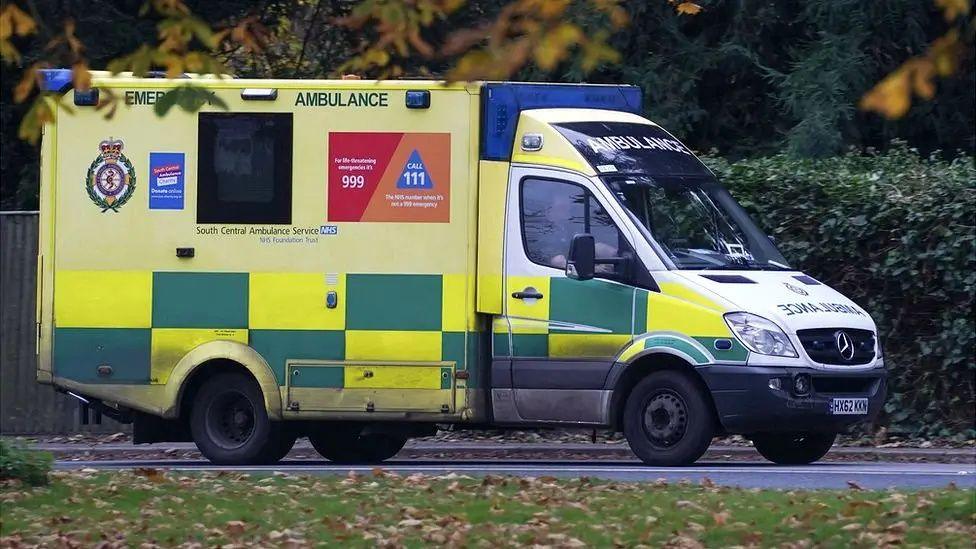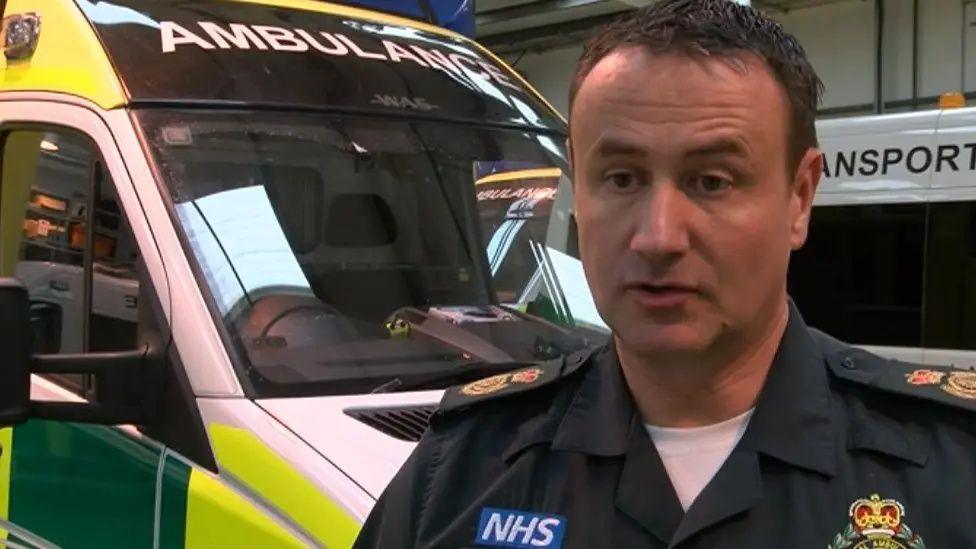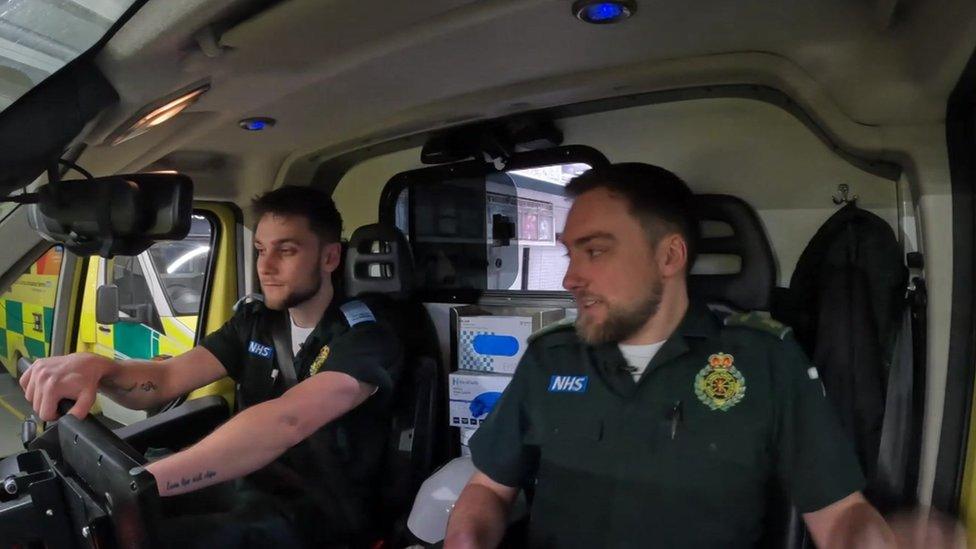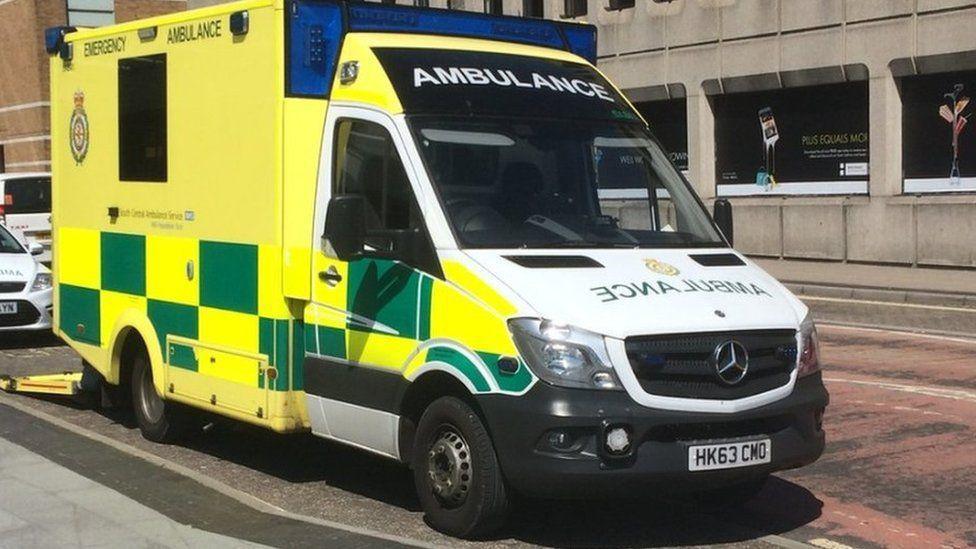Ambulance service 'under pressure' ahead of winter

South Central Ambulance Service warned that crews were being held up while handing patients over to hospital emergency departments
- Published
An ambulance service has warned of longer waiting times happening earlier in the year than usual.
South Central Ambulance Service (SCAS) said its 999 service was "experiencing increased pressure" and urged people to use other facilities for non-emergency cases.
Executive director of operations Mark Ainsworth said it was due to longer handover times at hospitals, rather than an increase in calls.
Speaking on BBC Radio Berkshire, he said the delays were "unusual for this time of year".
"What we are experiencing is longer handover delays at some of our hospitals - it means ambulances should be out responding to patients but are being held up at the hospitals," Mr Ainsworth said.
"It's a very poor experience for those patients, but also for our crews waiting to offload those patients."
Mr Ainsworth said call handlers were prioritising the most serious category one and two calls, but admitted some category three or four patients were waiting an "exceptionally long time" for an ambulance.
"That's not the service we strive to deliver for our patients," he said.
"We're working with the hospitals to release the ambulances as quickly as we can and we've seen struggles over the past few weeks but this week we've been under a immense pressure with an increasing number of ambulances being held."

Mark Ainsworth warned delays could get worse heading into winter
Mr Ainsworth said at one point in the past week, 32 ambulances were being held at one hospital, out of the total fleet of 180.
He said: "It's a long standing issue, but we are seeing that peak of activity in winter coming in a lot earlier than we normally do.
"If we don't resolve it now, going into the winter presents us with a significant challenge.
"It's the patients we can't get to who are suffering."
Peter Ridley, chief officer at Portsmouth Hospitals University NHS Trust which runs the Queen Alexandra Hospital in the city said the hospital, and others, "continue to see high levels of demand at our Emergency Department".
"This combined with a large number of patients waiting to be discharged to their next place of care means that people attending the Emergency Department are waiting for significantly longer to be seen than we would like.
"Our staff are working hard alongside partners such as SCAS to ensure the safety of patients and staff."
SCAS said anyone with a non-emergency, medical need should use local services, such as urgent treatment centres or the 111 online or phone service.
In January SCAS declared a critical incident when 70% of 999 callers were assessed as having serious conditions, causing delays and putting the service under severe pressure.
The service covers emergencies in Berkshire, Buckinghamshire, Hampshire and Oxfordshire.
Get in touch
Do you have a story BBC Hampshire & Isle of Wight should cover?
You can follow BBC Hampshire & Isle of Wight on Facebook, external, X (Twitter), external, or Instagram, external.
See also
- Published22 February 2024

- Published24 January 2024
